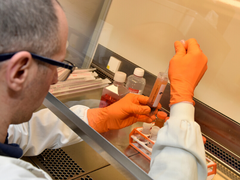News and blogs
175 results found.
I felt like I'd hit the jackpot: My experiences on a clinical trial
Learn more about Nicky's experience of taking part in a blood cancer clinical trial to treat chronic lymphocytic leukaemia (CLL) .
28th May 2021
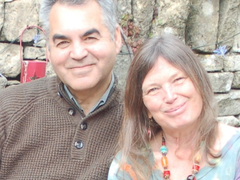
Together we're investing £800K in vaccine efficacy research
Read more about the Blood Cancer UK Vaccine Research Collaborative's research on Covid vaccine effectiveness in people with blood cancer.
26th May 2021
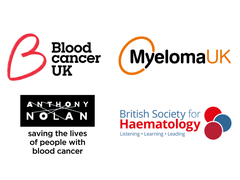
Announcement on the first blood cancer vaccine efficacy research funding
Read Blood Cancer UK's announcement on funding the first research into COVID-19 vaccine efficacy for people with blood cancer.
11th May 2021
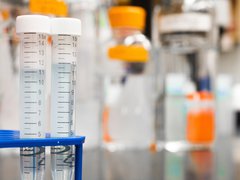
What else can we use to protect people with blood cancer from covid?
Find out what Professor Andrew Ustianowski thinks can protect people with blood cancer from Covid-19.
5th May 2021
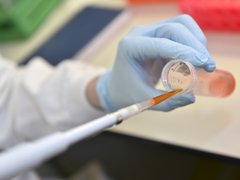
Do people with myeloma have an antibody response to the Covid vaccine?
Read Blood Cancer UK's article on the study into the number of people with myeloma who had some kind of antibody response to the Covid vaccine.
20th Apr 2021

Covid vaccine efficacy for blood cancer research collaborative launched
Find out more about The Blood Cancer UK Vaccine Research Collaborative and how it will research into Covid vaccine efficacy for blood cancer.
19th Apr 2021

Deciding to take part in a chronic lymphocytic leukaemia (CLL) clinical trial - David's story
Read how the progression of David's CLL was reversed by taking ibrutinib as part of a blood cancer clinical trial.
31st Mar 2021
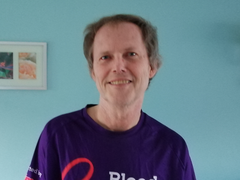
How can I get involved in blood cancer research?
Find out how you can get involved in blood cancer research to help us beat blood cancer.
24th Mar 2021
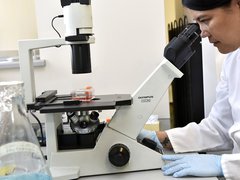
The COVID-19 vaccine and blood cancer
Blood Cancer UK responds to study conducted around the COVID-19 vaccine and blood cancer.
11th Mar 2021
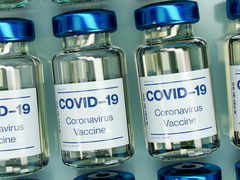
First study on vaccine effectiveness in people with cancer
Read Blood Cancer UK's response to the first study on Covid vaccine effectiveness in people with cancer.
11th Mar 2021
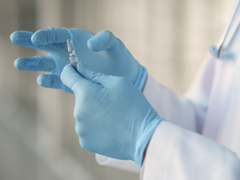
Should people with blood cancer get an antibody test?
Read more about what people with blood cancer should know about antibody tests and the Covid vaccine.
5th Mar 2021
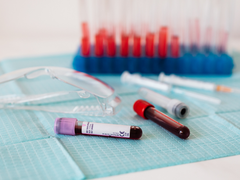
Professor Jim Allan's research on CLL (chronic lymphocytic leukaemia)
Watch Blood Cancer UK's video which takes a look at Professor Jim Allan's research into treatments for CLL.
4th Mar 2021

Antibiotic could help treat MLL-AML
Discover how research by Cancer Research UK and Blood Cancer UK found an antibiotic could treat a type acute myeloid leukaemia (AML).
24th Feb 2021
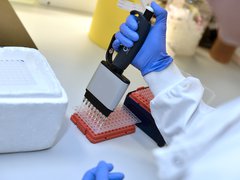
How dangerous is Covid-19 for people with blood cancer?
Read Blood Cancer UK's article looking at study's on how dangerous Covid-19 is for people with different types of blood cancer.
5th Feb 2021

How was the coronavirus vaccine created?
Learn how the coronavirus vaccines were made, including information on clinical trials, vaccine approvals and long-term side effects.
11th Dec 2020
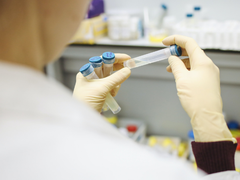
The coronavirus vaccine: what you need to know
We outline what we know about the potential coronavirus vaccines, and explore what they could mean for people with blood cancer.
25th Nov 2020
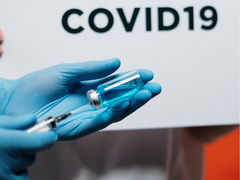
How does the coronavirus affect people with blood cancer?
Blood Cancer UK are funding vital research that will explore how different types of blood cancer might affect someone’s individual level of risk from coronavirus.
11th Nov 2020

Our aim to beat blood cancer in a generation
Learn how Blood Cancer UK aim to beat blood cancer in a generation.
30th Sep 2020

Does having blood cancer put you at greater risk from the coronavirus?
Find out if people with blood cancers are more likely to suffer severe and life-threatening COVID-19 than healthy individuals.
24th Aug 2020
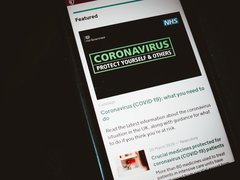
How could a coronavirus vaccine help people with blood cancer?
Find out how coronavirus vaccines work and their potential to protect people with blood cancer.
13th Jul 2020
